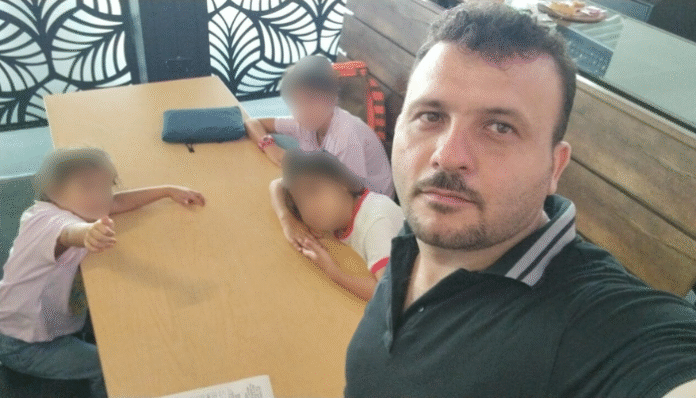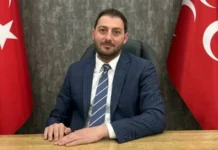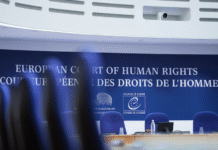A Turkish refugee under United Nations protection was deported from Rwanda to Turkey on Saturday with his three children, following apparent pressure from the Turkish government.
Orhan Artar and his children, aged 11, 9 and 5, were hoping to fly to Belgium and then on to Germany to reunite with his wife and their fourth child. The family had sought refuge in Kenya after fleeing Pakistan in 2018 due to security concerns. They travelled to Rwanda after first driving to Tanzania.
The family waited in Kigali until Friday for a flight to Belgium but were detained by Rwandan authorities, who alleged that their passports were fake and said they would be deported to Tanzania. Instead, following what appears to be an intervention by the Turkish authorities, they were flown to İstanbul. Artar was arrested upon arrival over alleged links to the faith-based Gülen movement, while his children were handed over to relatives.
Turkish President Recep Tayyip Erdoğan has been targeting followers of the Gülen movement, inspired by the late Muslim cleric Fethullah Gülen, since the corruption investigations of 2013, which implicated then-prime minister Erdoğan, his family members and inner circle.
Dismissing the investigations as a Gülenist coup and a conspiracy against his government, Erdoğan began to target the movement’s members. He designated the movement as a terrorist organization in May 2016 and intensified the crackdown on it following an abortive putsch in July of the same year that he accused Gülen of masterminding. The movement strongly denies involvement in the coup attempt or any terrorist activity.
According to Orhan’s wife, Fatma, the deportation was carried out following pressure from Turkey’s National Intelligence Organization (MİT). The agency is known for using extra-legal methods, including renditions, to secure the return of Gülen movement supporters. Since the coup attempt MİT has conducted operations for the forcible return of more than 100 people with alleged links to the Gülen movement.
Artar worked at a Gülen-affiliated school in Pakistan between 2012 and 2016. Following the coup attempt, Pakistan’s interior ministry, acting on Ankara’s request, ordered 108 Turkish families, including the Artars, to leave the country within three days.
Fearing deportation, the family went into hiding. In February 2017 they applied for asylum with the UNHCR in Islamabad. The agency granted them official protection, confirming they could not be legally returned to a country where their safety or liberty would be threatened.
Though under UN protection, the Artars said they lived in fear after the family of a close friend and colleague, the Kaçmaz family, was abducted in Pakistan in September 2017 and forcibly returned to Turkey, despite also being registered with UNHCR. “Even while under UN protection, our friends were kidnapped and sent back,” Fatma said. “We realized we were not safe.”
In February 2018 Orhan Artar learned that he had been charged in absentia in Turkey. A formal arrest warrant followed. Fearing forcible return to Turkey, the family relocated to Kenya in May 2018.
In 2023 Fatma left Kenya with one of their children to seek asylum in Germany. Orhan, whose Turkish passport had expired, was unable to accompany them. His journey to Rwanda was part of a broader plan to reunite the family in Germany through the asylum-based family reunification process. However, German authorities rejected Fatma’s asylum application in May 2024, further complicating the family’s situation.
The Turkish and Rwandan governments did not comment on Artar’s deportation. The UNHCR also has yet to issue a statement but previously warned that returning refugees to countries where they face persecution violates international law, particularly the principle of non-refoulement.
Artar remains detained in Turkey pending trial. His family fears he will face mistreatment in custody.
The case is the latest in a growing pattern of transnational repression by Turkey, which human rights groups say increasingly targets dissidents abroad. According to a 2023 report by Freedom House, Turkey has become the world’s second most prolific perpetrator of transnational repression. A wide range of tactics used by the Turkish government against its critics abroad include spying through diplomatic missions and pro-government diaspora organizations, denial of consular services and outright intimidation and illegal renditions.
In late 2024 Kenya forcibly returned four refugees who were sought by Turkish authorities due to their alleged links to the Gülen movement, to Turkey after they were abducted by masked men in Nairobi in October, citing an extradition request from the Turkish government. They were refugees registered with the UNHCR who were protected from forcible return to Turkey, where they claimed they faced threats to their life and freedom due to their links to the movement.
Recent cases also include that of Koray Vural, a Turkish businessman who went missing in Tajikistan in September 2023 and was found to be in police custody in Turkey the next month. Emsal Koç, who also went missing Tajikistan in June 2023, was found to be in police custody in the eastern Turkish province of Erzurum when the police contacted his family living in the province.















